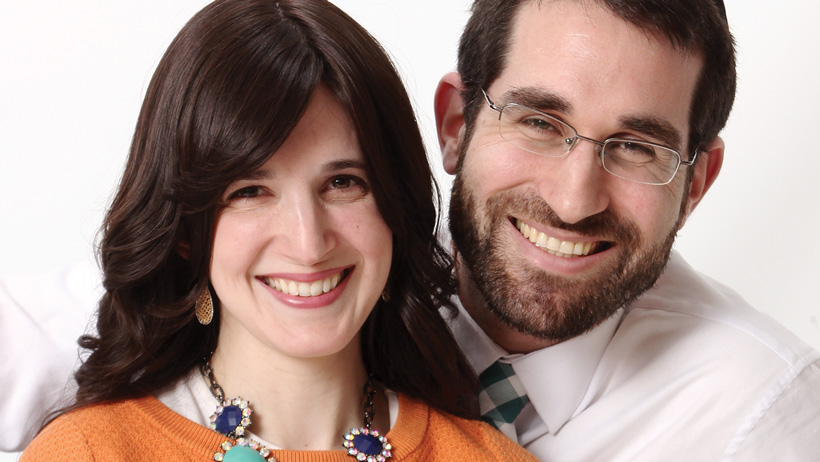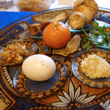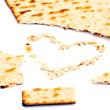One of the highlights at the Seder is the four questions. The youngest gets up on a chair and proudly declares four simple and insightful questions. Everyone watches proudly as the next generation is inculcated with the fundamental Jewish concept of being inquisitive (and super cute). This endearing introduction to the evening instills the essential lesson of life-to question-because we know it is only through questioning and receiving insightful answers that true learning and appreciation for our rich heritage is accomplished. However, after the four questions, we are left with a minor quandary-what are the four answers?
The first and second questions, which inquire about the peculiarity of eating matzoh and maror (bitter herbs), are answered directly by the Haggadah quoting an ancient Talmudic passage that says: "This matzoh that we are eating is because the dough of our forefathers did not have time to become leavened…This maror that we are eating is because the Egyptians embittered the lives of our forefathers in Egypt…"
The third and fourth questions, which inquire about the tradition of dipping vegetables twice at the Seder and the mitzvah to recline during the meal, are seemingly left unanswered by the Haggadah.
Actually, the answer to give our children (and ourselves) for why we recline is because we are behaving like royalty. (Note: "reclining" does not mean slouching or being lazy. It means relaxed, leaning, and comfortable.) What does royalty have to do with Seder night? Everything.
First, we have to ask, 'What is royalty?" In Hebrew, the word for "master/ruler" is adon, which also means "a support from below." True mastery and rulership is to support those in need, providing a foundation to hold them up. The word for a leader is nasi, which also means a cloud, because the clouds are above pouring down the blessings of rain and sustenance to the needy below. The Jewish definition of royalty is to provide support from below and blessings from above.
In a DP (displaced persons) camp shortly after liberation, one of the survivors arranged the baking of matzohs for Passover. Supplies were very limited, and the matzoh was rationed at two matzohs per family. A great Chassidic rabbi sent his son for four matzohs. The man responded, "I'm really sorry. I wish I could, but there is a limit of two per family. I'd love to make an exception, but I really can't." The boy persisted saying, "My father never asks for special treatment, but he was adamant about this. He said he needs four." The man found it hard to refuse, especially since this rabbi did so much to help his fellow Jews during the war. So he gave him the four matzohs. Right before the Seder, the rabbi came to see the man. "I know the kind of person you are, and I was concerned. I was sure you would give out all the matzohs and not keep any for yourself. The matzohs were for you."
Despite everything they went through, they had such sensitivities to the needs of others. They exemplify the Jewish definition of royalty. We tell our children emphatically, "You, my precious child, are royalty! As part of the Jewish people, you must bring support, love, blessings, and hope to the world." That is true royalty.
And what about the question about double dipping on vegetables? For that, you'll have to ask around the table! Happy Passover.
Joshua Marder is a rabbi and licensed Marriage and Family Therapist. He and his wife, Laura, are the directors of Chicago YJP, a Division of the Lois and Wilfred Lefkovich Chicago Torah Network.




.jpg)
.jpg)




.jpg)



